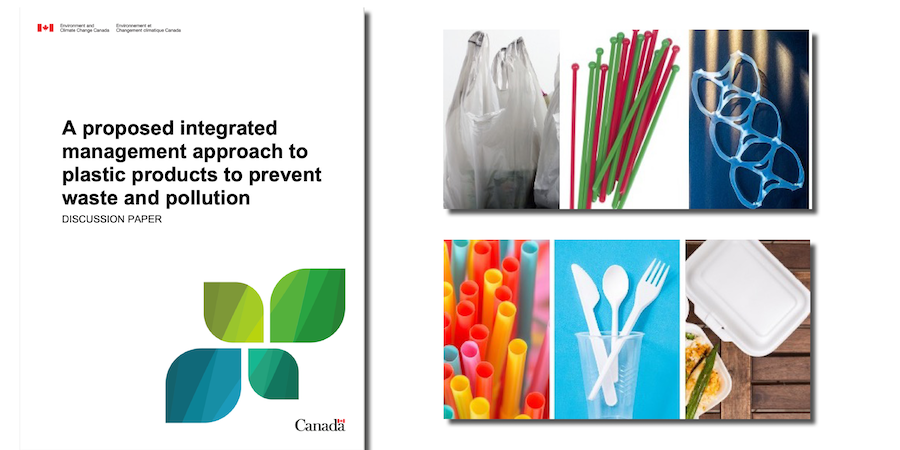RCO Response to Government of Canada’s Approach to Plastics
The Government of Canada is taking steps toward eliminating plastic pollution in Canada, including potentially banning or restricting certain harmful single-use plastic products. The discussion paper seeks input on a proposed integrated management approach to plastics to take a number of actions, including regulations which would be developed under the provisions of the Canadian Environmental Protection Act.
On Oct. 7, 2020 the Government of Canada released a comprehensive plan that introduced three primary tactics to reduce plastic pollution:
- Banning certain harmful single-use plastics as early as 2021 by enacting regulation that targets sources of plastic pollution through the Canadian Environmental Protection Act.
- Establishing performance standards that includes recycled content requirements, including a 50% recycled content target in plastic products by 2030.
- Ensuring end-of-life responsibility.

Recycling Council of Ontario Response
The initiatives and ideas outlined in the integrated management approach to eliminate plastic pollution are critical to the economic, environmental, and social well-being of Canada, and should be put into motion starting in 2021.
There is also prodigious support throughout the country to create and implement solutions to plastic waste from global and national corporations, small- and medium-sized enterprises, provincial and municipal governments, First Nations, non-profits and charities, and individuals.
Submission Highlights and Recommendations
- Set a national plastic waste reduction and recycling target for Canada.
- Create a national registry that is capable of tracking plastic production, sales, and end of life management.
- Ensure that information and data collected through the registry is shared publicly to all interested and affected stakeholders.
- Ban packaging and products from sale as they are set out in the discussion paper; designed for single use; difficult to manage through recycling or composting applications; and where market alternatives exist to support avoidance, reuse, or improved recycling or composting options.
- Expand the list of banned single-use plastics where there is evidence that they are found in the environment, are often not recycled, and have readily available alternatives.
- Under the Canadian Environmental Protection Act mandate the use of post-consumer recycled (PCR) content for plastics in the manufacturing of new products.
- Set a 50 per cent minimum baseline by 2030 and use an economy-wide approach for its implementation.
- Develop a national strategy to guide PCR implementation and work with a cross-section of stakeholders and jurisdictions to identify priority sectors and/or products; develop use standards and specifications; and identify verification processes and protocols.
- Create a national reporting repository to track adoption and impacts, and make all related information accessible for public consumption.
- Government of Canada should leverage its leadership position and buying power to advance all policy objectives outlined in the discussion paper starting in 2021.
- Government of Canada should leverage its leadership position and buying power to advance all policy objectives outlined in the discussion paper starting in 2021.
- Increase PCR content, ban single-use items, and ensure responsible end of life management by implementing circular procurement practices.
- Use convening powers to coalesce governments at all levels and develop a circular procurement strategy that targets the elimination of plastic waste.
- Create a set of national standards to support effective provincial and territorial circular procurement policies and practices.
- Create national standards, based on best practices, that include standardization for regulatory scope; regulatory terms and definitions; performance targets; and reporting protocols that guides implementation and expands EPR policies across Canada.
- Utilize the national registry for plastics production and end of life management to track all advancements in EPR regulations applied to products and packaging that contain plastic.
- Dismiss outright any form of incineration, thermal treatment, or energy-from-waste as an acceptable approach to mitigate plastic waste.



